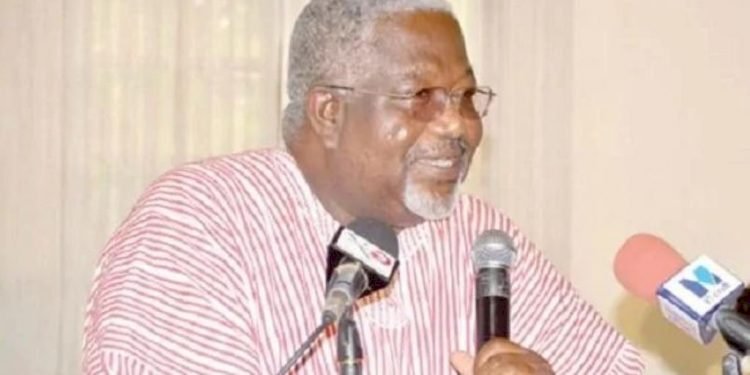Supreme Court Should’ve Allowed Parliament To Resolve ‘Presiding Speaker’ Confusion - Ken Dzirasah

A former Member of Parliament for the South Tongu Constituency, Kenneth Dzirasah, says the Supreme Court should have allowed parliament to decide for itself whether a deputy speaker of parliament, while presiding, can vote on a matter in parliament or not. According to him, the judgement given by the Supreme
Court may cause reprisal actions which could also slowdown legislation in the country especially when there is an insistence on headcount to also make any decision. The proper thing the court should have done was to say that this is a procedure for parliament and so they should manage it for themselves. This may
start reprisals and the possibility that every matter that also comes before the House will be determined by a headcount or a vote and that is going to slow down the process of legislation and Ghana will be the loser, he stated. The Supreme Court on Tuesday ruled that a deputy speaker of Parliament, or any other member of
the legislature presiding over business of the House, does not lose his or her right to vote while presiding. Such a Speaker or Member can also be counted as part of the quorum for decision making in the House under article 104(1) of the 1992 Constitution. The Court, consequently, struck down Order 109 (3) of Parliament’s
Standing Orders of Parliament, also describing it as unconstitutional. The Order provides that a Deputy Speaker or any other Member of Parliament presiding over the business of the House shall not retain his or her original vote while presiding. Since the judgement was given, there has been mixed reactions with some
suggesting that the judgement is positive and ensures that deputy speakers or anyone presiding still represent their constituents in making a decision in the House, but Ken Dzirasah also says that the decision was quite disappointing. My disappointment in the whole exercise stems from the fact that by this decision, the 1st or 2nd deputy speakers are being put in a position where they
are both players and referees and I can’t fathom the justification for that, he said. [While presiding in the stead of the Speaker of Parliament] you sit in that seat and tailor the decisions that are made. It is the decision of the entire House, it does not mean that you are being also prevented from partaking in the decision making process, he added.







